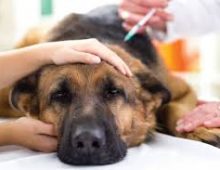Category Archives: Kids
2017 Vaccination Clinics
Our vaccination clinics offer a closer-to-home option for keeping up on your dog or cat’s routine vaccinations. We visit Oulu, Port Wing, Cornucopia, Maple, Brule, Mason and Mellen annually (just in time for dog licensing). Stop by for annual heartworm and tick-borne diseases testing/prevention, internal parasite treatment/prevention, and discounted vaccinations for your faithful pets!
Click HERE for more information about dates, times and locations, or call our clinic.
(photo courtesy of: http://allcarepetpacifica.com/service/vaccinations/)
Happy Thanksgiving!!
Can my dog have turkey scraps? My cat likes cranberry sauce; is that okay? If you’re wondering what’s safe for your pets, you are not alone. To get you started, remember to Be Careful of the Bones!! From all of us here at Willow, have a safe & happy Thanksgiving!
(photo courtesy of: http://www.vvcofhamburg.com/thanksgiving-pet-safety-tips/)
From ABC to E = mc2?
As your kids prepare to go back to school, don’t forget about your playful pooch! Could your dog benefit from going to ‘school?’ Obedient pets are not only safer & more enjoyable to be around, but training will also help strengthen the bond between you & your canine companion. Whether you have a new puppy, or a more mature dog that’s a bit of a ‘wild child,’ consider enrolling in canine obedience classes this fall!
(photo courtesy of: www.petswelcome.com)
Rabies is Incurable?!?
Rabies is a zoonotic disease, meaning it can be transmitted between people and animals. Wildlife like bats, skunks, and raccoons are some of the most common carriers of the disease. Infection occurs when saliva of the infected animal enters the bloodstream of another mammal (this is often from a bite). The disease can take weeks to months to develop symptoms, but once they develop the disease is fatal. Recent confirmed cases of rabies in bats in Ashland and Bayfield Counties have been documented. Please consider the following steps to protect yourself from this deadly disease:
•Keep your pets current on their rabies vaccination. It is only legally required in dogs, but highly recommend in other species (cats, horses, etc.). Not only will this protect your pet from rabies, but in turn it protects you from being exposed to rabies from your own pet.
•Keep your distance from mammalian wildlife, especially any exhibiting abnormal or sickly behavior (ex. a skunk roaming during daylight, a bat acting weak and sick)
•If you are bit by mammalian wildlife contact your local health department. They will direct you on how to submit the animal for rabies testing, if necessary. Only collect the animal if it can be done safely, and try to avoid damaging the head. If you cannot collect the animal, you should still contact your local health department for further instructions.
•If you find a bat in your house contact your local health department. Bat bites can often go unnoticed while you are sleeping. The health department will direct you on how to submit the animal for rabies testing, if necessary. Dr. Sarah Myers, Willow Animal Hospital
(photo courtesy of: www.delavanlakesvet.com)
TICKS: Beyond Lyme Disease & "Ewww!"
If you have lived in northern Wisconsin long enough you probably have run into a tick or two, or hundreds. You may be familiar with the most common risk with ticks as carriers of Lyme disease. Here are some things you may not know about tick diseases:
•The ticks in our area can carry many diseases that can effect both people and pets (Lyme, Anaplasmosis, Ehrlichiosis, and Rocky Mountain Spotted Fever are some of the most common)
•Of the many tick diseases, only Lyme disease has an available vaccine for dogs
•No vaccine (including the Lyme vaccine) is 100% effective at preventing diseases
•A multimodal approach to tick disease prevention is considered the most effective at keeping your pets safe (Lyme vaccine, topical or oral tick prevention products, daily tick checking, avoiding wooded or long grass areas during peak tick season)
•It can sometimes take several months after a tick bite for disease symptoms to develop
•Symptoms of tick diseases can include lethargy, anorexia, lameness, swollen painful joints, high fever
•The classic “bullseye” appearance of a tick bite that is described in people with Lyme disease is not typically seen in dogs
•Many tick disease infections carry a good prognosis if treated promptly and with the entire course of prescribed antibiotics
•Some tick disease infections can cause very serious side effects that may be fatal (ex. Lyme disease in some dogs can lead to a potentially fatal kidney failure)
Call us if you have other questions about tick diseases! Dr. Sarah Myers, Willow Animal Hospital
(photo courtesy of: www.pvguide.org)
Click HERE for 5 ways to protect your pet from Lyme disease.
Click HERE to learn more about protecting yourself & your family from Lyme disease.
Merry Christmas!!!
Merry Christmas, from the doctors and staff at Willow Animal Hospital
Thank you for your business and friendship! May you feel God’s blessing during this holiday season, and have a new year that is full of hope and joy. (photo courtesy of: www.pinterest.com)
What is Lepto anyway?
Leptospirosis is a potentially fatal bacterial disease that can cause a very sudden onset of kidney and liver failure in dogs. It is transmitted through urine from infected mammals – often wildlife. Dogs that are at highest risk are those that drink water sources that could be contaminated with wildlife urine. Prevention of this disease is possible with a two shot initial series followed up by an annual vaccine. Leptospirosis is a zoonotic disease, meaning it can be spread from animals to people. Therefore, keeping your pets safe from the disease will help to prevent transmission to your family too. Dr. Sarah Myers, Willow Animal Hospital
(photo courtesy of: www.playbuzz.com)
Kids & Pets
Did you know that pets can transmit some infections to people? These types of transmissible conditions are called zoonotic diseases. With good preventive care risk is extremely low. Intestinal parasites are one of the most common zoonotic diseases we see in pets. We recommend monthly preventive deworming products to prevent your pets from getting intestinal parasites. Preventing your pets from getting these infections is the first line of defense in preventing transmission to your family. Schedule your pet’s annual exam to learn more about which product is best for your pet! Dr. Sarah Myers, Willow Animal Hospital
(photo courtesy of: topicnow.info)













